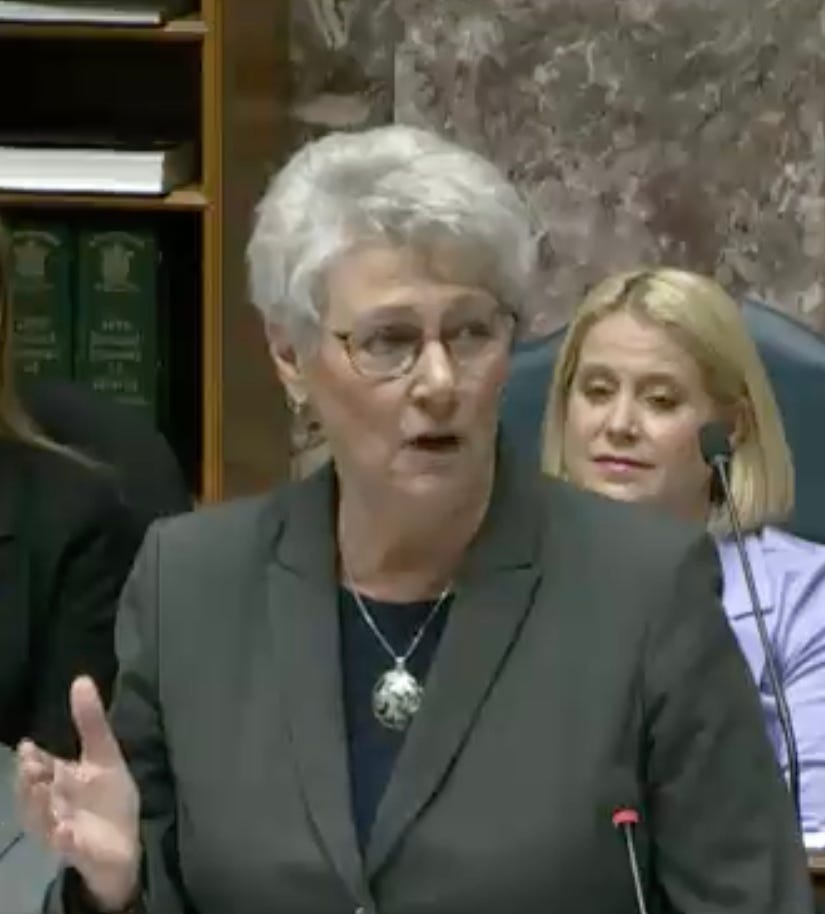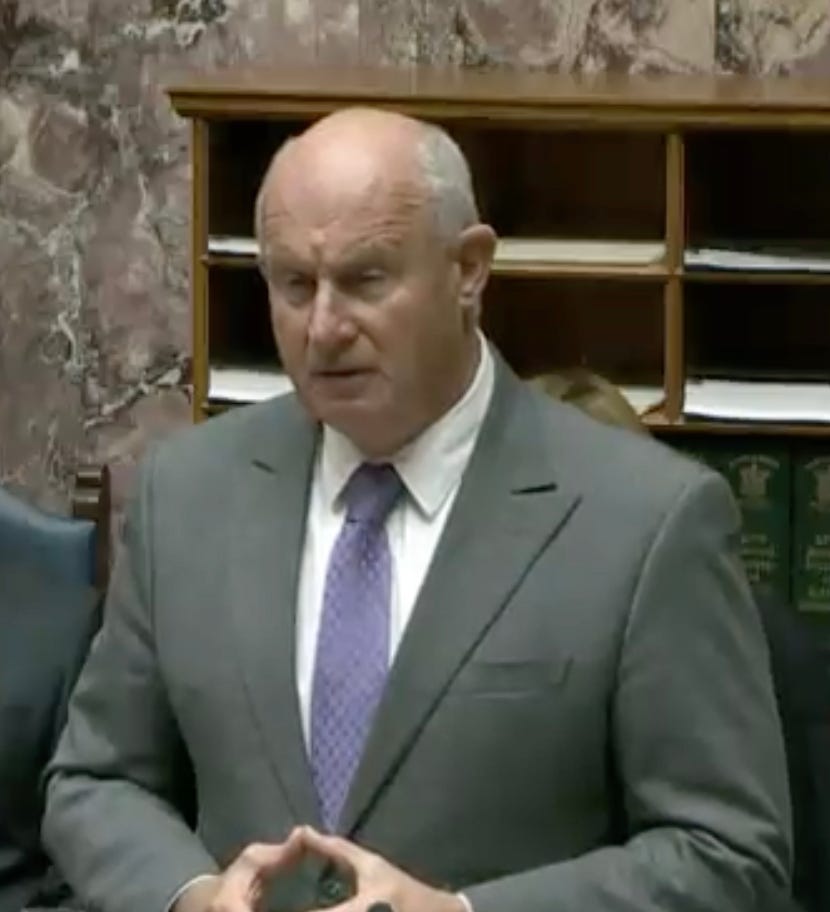Intrigue, scandal, civility, dashed hopes and broken memes
“Talk, talk, meeting, meeting, talk, talk and more meetings.” –Todd Stone
Week two in the hallowed halls…
Guess what?! David Eby will be our next premier!!! [Royal trumpets blare]
OK, not such a huge surprise given 48 of 57 MLAs were lock step behind David Eby when he announced he was running for leader on July 19. Most people thought Eby had it pretty much locked up. Then, improbably, in August, a possible contender materialized. At first it was, oh, ha-ha, who is this climate-activist-political-upstart-young-person-not-really-contender-material Anjali Appadurai? Then her potential candidacy gained momentum and she began signing up new members. Suddenly, Eby’s ascension prospects dimmed.
Word was, the NDP let their membership dip to 11,000 people. And, while Eby –and most everyone else – envisioned an acclamation, Appadurai supposedly began reeling in members by the thousands. The actual numbers aren’t public – Appadurai pleaded ignorance and the NDP won’t say. Which means, it was enough to worry the party but not enough for Appadurai to brag about. Meanwhile, complaints about breaking party financing/fundraising rules surfaced.
She came this close
In the end, Appadurai was rejected under allegations of collusion with third-party organizations campaigning on her behalf. [Read Vaughn Palmer’s take on Eby’s role in her disqualification.] Appadurai denied the charges, but the NDP internal investigation decided otherwise and she was officially nixed on Wednesday night. Bottom line: NDP party leadership race = NDP party rules.
[Listen to former BC NDP premier Ujjal Dosanjh’s perspective on CBC’s Early Edition with Stephen Quinn.]
For Appadurai’s part, she claims the NDP investigation was biased from the start. “We rose too fast and took power off guard.” Despite her disillusionment, Appadurai says the party reflects her values and she will keep her membership. Her reasons for hanging in may also relate to a still-gestating plan by some of her supporters to overthrow the current NDP leadership from within. A hostile takeover? No, said Appadurai when asked, more like a “grassroots revitalization.”
It’s hard to imagine Appadurai and her followers have the organizing or staying power to unseat the leadership of the NDP. But in these unpredictable times, who knows. Certainly, David Eby took pains to assure her supporters there was a place for them in the party. His early priorities as premier will reveal how far he’s willing to go to bring them into the fold.
Next up, Question Period.
Crime and Punishment
Prolific offenders were the main topic du semaine in Question Period and Opposition Leader Kevin Falcon led the offensive. When will the “soft-on-crime” government end the “catch-and-release policies” and “put the public’s right to safety before a criminal’s right to reoffend?” Falcon and his MLAs asked Attorney General Murray Rankin again and again over the week. One after the other, the BC Liberals ripped into Rankin, brandishing stories of truly horrible attacks by repeat offenders, many of whom had been recently released following arrest or were in breach of court orders at the time of the assaults.
In the midst of this full court press for action on violent prolific offenders Burnaby RCMP Const. Shaelyn Yang was killed at the hands of a man with repeated interactions with police who was living in a tent in a local park. Yang was a member of the detachment’s mental health and homeless outreach team and was attending the scene with a local parks officer.

Kamloops North Thompson MLA Peter Milobar reminded Rankin that in the six months since the BC Liberals have demanded government take action on prolific offenders, 1,000 people have been attacked in Vancouver alone. Later Milobar recounted a particularly horrendous crime spree over a two-day period in which a prolific offender allegedly punched and kicked a 70-year-old from behind, punched a woman in the face, stabbed another woman, then broke into a home and attacked a fourth person. “When is this Attorney General going to take actual, meaningful, lasting action to protect people versus the criminals?” Milobar asked.
In response, Rankin commiserated. “The incidents that the honourable member refers to are horrible. My heart goes out to the victims of those crimes.”
He then referenced the prolific offender management pilot project the government was going to restart and reminded the chamber that changes to the Criminal Code had to be made by the federal government. Meanwhile, the government is addressing the root causes like mental health and addictions, he says. “It’s important to be tough on crime and also tough on the causes of crime.” How good a job they’re doing is on either front is questionable, but props to Rankin for always keeping it civil. There’s a reason he’s the Minister of Reconciliation.
Lawyerly dust-up
On Tuesday, BC Liberal MLA and former Attorney General, Mike de Jong, unsheathed his law degree and sliced through Rankin’s excuses for not taking action to detain violent prolific offenders. de Jong explained the policy directive Rankin could enact right now. Then he handed Rankin a draft of said directive. In return, Rankin reiterated the impotency of the provincial government given the constraints of the federal Criminal Code, the Charter of Rights and Freedoms and various Supreme Court rulings. de Jong said in an earlier interview, “Ultimately, the decision is for the judge, but you’ve got to ask.” de Jong, 1: Rankin, 0.
How to Sue the Police
On Thursday, BC Liberal House Leader Todd Stone landed a few bruising jabs when he speculated why the government hasn’t acted to detain violent repeat offenders or lobbied for Criminal Code changes. “Clearly, the NDP are hung up on their ideology.” Stone cited Eby’s activist days with BC Civil Liberties and Pivot Legal when he authored gems like the 10-step How to Sue the Police handbook and denounced the “aggressive policing tactics” of the prolific offender management program the NDP recently exalted and promised to revive.
[Read our Q & A with Eby to learn his more recent thoughts about prolific offenders and the justice system.]

Every day, more people are assaulted
Falcon says his sources in government indicate that a directive – similar to the one suggested by de Jong to Eby months ago – is in fact being quietly drafted. Yet Rankin has said nothing. One theory floating around is that the NDP are holding off on any dramatic policy announcements until Eby can do them himself after he’s sworn in as premier. Time with tell.

One man band
By week’s end, Solicitor General and Public Safety Minister, Mike Farnworth, was a one-man band, playing guitar, keyboards, drums and tambourine. He answered every question in Thursday’s Question Period. Amid deflections, partisan declarations and a couple outrageous assertions, Farnworth landed two solid points.
Securing a meeting with the feds to make charges to the Criminal Code “is not just a meeting,” Farnworth said. It could result in significant changes Canada-wide with support across every province and territory. Second, he seems to support reverse onus on bail for violent repeat offenders. Meaning, instead of release following arrest being the default, violent offenders using weapons would instead be held in custody, unless there were compelling arguments otherwise.
Conroy-Furstenau: round one
Switching gears, BC Green Leader Sonia Furstenau might have struck a nerve when she asked Forests Minister Katrine Conroy about the pellet industry.
“I will try to ensure that I say it so that the member understands,” Conroy began condescendingly, like Furstenau was a slow learner and minister was repeating the answer for the tenth time. [It was Conroy’s first question from Furstenau this session and the second time the Greens had asked her about the pellet industry and Drax.]
Drax is the massive UK coal processor and majority owner of BC’s pellet industry, which is logging BC forests, turning them into pellets, and shipping them to the U.K. where they are burned in place of coal. Yay for BC for turning its “logs” [also known as trees] into “bioenergy” that helps the UK reduce its GHG emissions, said Conroy. Furstenau did not call that a win.

Ninety per cent of pellet wood comes from sawdust, shavings, chips and harvest residuals, according to Conroy. Yet Furstenau cited a confidential memo addressed to Conroy which estimated 75 per cent of fibre for pellet processing in BC comes from sawmill waste. Originally, the pellet industry was only supposed to use waste wood from sawmills and slash piles left from logging. Then it ran low on fibre and began logging forests to meet supply needs. Conroy conceded, “companies might use a whole tree for a pellet factory, but it's a tree that wouldn't be used in a sawmill.”
When did pelletizing whole trees become OK?
In 2020, the PacBio pellet company (now owned by Drax) had a whopping 30 per cent shortfall in fibre. And “fibre’ has gotten even more scarce since then. At that time, the company had acquired a license from Canfor to log primary (never before logged) forests near Prince George – including 200-plus year-old trees and sections of the Interior Rainforest. The CEO told me they intended to cut the trees to make up that fibre gap, selling what they could for saw logs and using the rest for pellets.
On to lighter topics…
Gather round, Hansard nerds
Legislative Speaker Ray Chouhan had a busy week refereeing the rowdy benches on both sides of the Chamber. Just for fun, we thought we’d distill Question Period down to only Chouhan’s words.
Here’s what the Speaker had to say during Thursday’s 30-minute Question Period (minus his introductions of members):
[Question Period begins.] Members. Members, we heard the question. Let's continue with the answer. Members. Please continue. Members please. Members, Members. Members, shhh. Just hold it [to the minister who was trying to speak] Members. Members, wait for your turn, please. The minister will continue. Member, through the Chair. That's not very smart, Members. Please. Just hold it, Minister. When the question is asked, please take a pause and let's listen to the answer. [Speaker rises] Members, are we going to continue like this and waste our time? If not, let's proceed with a proper question-and-answer period. The minister will continue. [Speaker resumes his seat] Members, the Chair can hear both sides, and the Chair can decide what's appropriate and not. You don't have to tell me, please. The minister will continue. Members. Members. Member, you're heckling your own member. Members, let's hear the question, please. Members. Members. Please continue. Shhh. Members. Members, let…. Members, Members. Members, have the courtesy to listen, please — all of you, both sides. Continue. [Speaker rises] Members, take it easy, please. Please. The minister will continue. [Speaker resumes his seat] Shhh. Members. Members, please. Members. Members. [Speaker rises] Members. Is the member for Surrey–White Rock asking a question? Take your time. Please continue. [Speaker resumes his seat] [Question period ends.] Members, question period is over. Please.
And finally… rats
Because we love an unusual animal story and since today’s theme was mostly crime, we found the perfect intersection of both – rats.
Humans weren’t the only ones going stir crazy during the pandemic. Apparently, rats have gotten more aggressive, engaging in “street fights,” territoriality and even cannibalism. (And here we are banging on about politics) The biggest shock on the rattiest cities list is Kamloops. (don’t ask me why)
That’s it for today.
As always, pls share this newsletter and our stories on NorthernBeat.ca. If you enjoy our work, consider a paid subscription – every cent goes to our writers.
Either way, thanks for subscribing!
Fran
Questions, comments and suggestions contact Fran@northernbeat.ca
For brain calisthenics read NorthernBeat.ca










